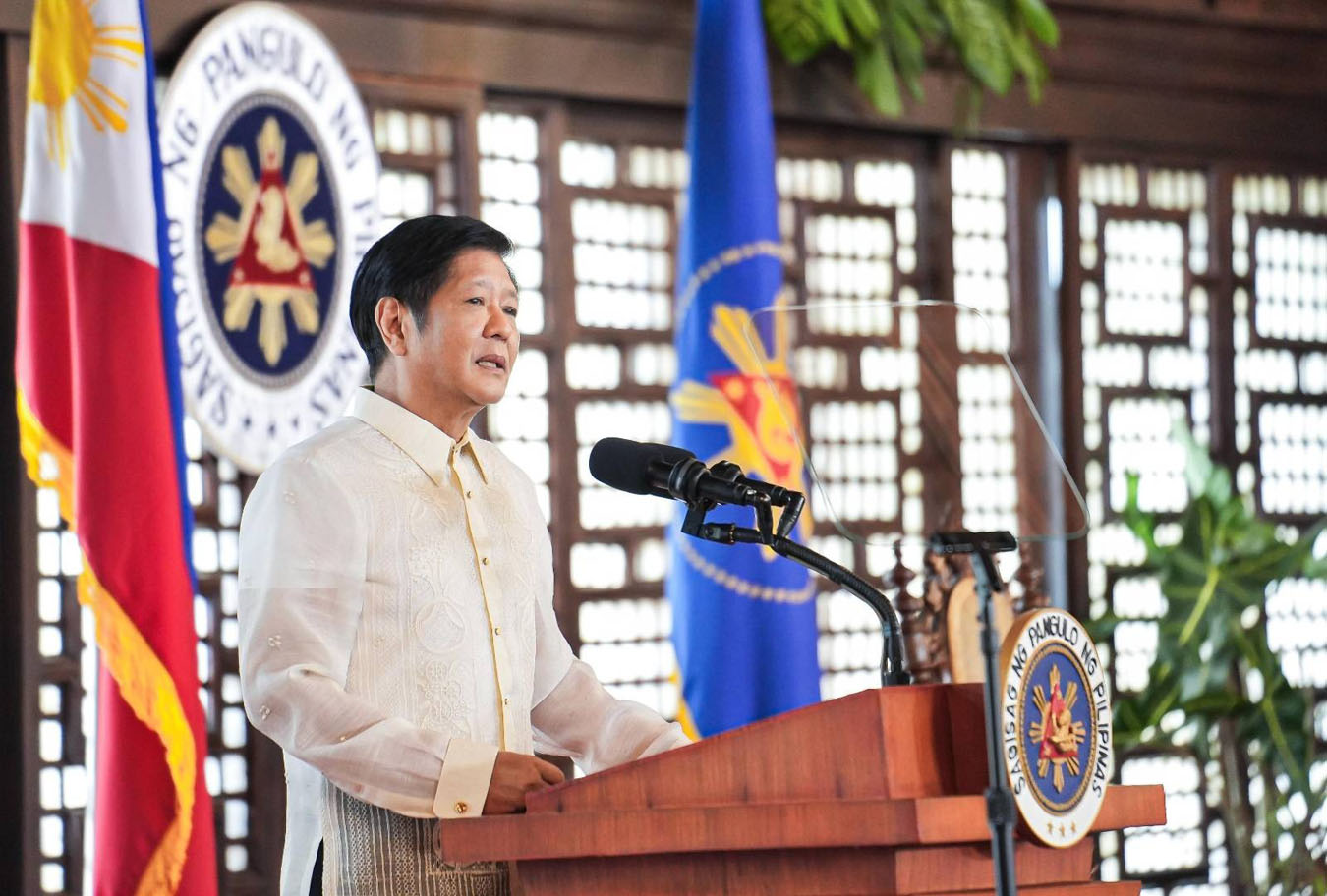Headline
Marcos signs ‘Eddie Garcia Law’ to protect TV, movie workers

FILE: President Ferdinand R. Marcos Jr. has fulfilled his promise to farmers to free them from debt as he signed on Friday the New Agrarian Emancipation Act, which will benefit more than 600,000 Filipino farmers nationwide. (PCO Photo)
MANILA – President Ferdinand R. Marcos Jr. has signed a law on protecting and ensuring the welfare of movie and television industry workers, which stemmed from the demise of legendary actor Eddie Garcia while filming on set.
Marcos signed Republic Act 11996 or the “Eddie Garcia Law” on May 24, the Presidential Communications Office (PCO) said in a news release on Tuesday.
The new law mandates the implementation of work hours, wages and other wage-related benefits, social security and welfare benefits, basic necessities, health and safety, working conditions and standards, and insurance.
Under the law, the protection of the movie and television workers should also be in line with the Labor Code of the Philippines or Presidential Decree 442 as amended, and Republic Act 11058 or the “Act Strengthening Compliance with Occupational Safety and Health Standards and Providing Penalties for Violations” and other applicable laws, the PCO said.
The Eddie Garcia Law has taken into account the gravity of the accident that caused the death of Garcia while filming.
It mandates that the worker and the employer or principal shall execute an agreement or an employment contract in a language or dialect understood by both parties before the commencement of service.
“No agreement or employment contract shall discriminate against a worker who has contracts or projects with other production outfits unless exclusivity is specified in the contract, nor shall any person perform any act involving preference based on race, color, descent, national or ethnic origin, or religion, which has the purpose or effect of nullifying the recognition, enjoyment, or exercise on an equal footing of any human right or fundamental freedom,” the law’s non-discriminatory provision stated.
As for the wages, the minimum wage of a worker shall not be less than the applicable minimum wage in the region where the worker is hired and wages shall be paid on time, as agreed upon in the contract, directly to the worker.
All workers shall also be covered by and entitled to benefits provided by the Social Security System (SSS), the Home Development Mutual Fund or Pag-IBIG Fund, and the Philippine Health Insurance Corp. (PhilHealth).
To ensure the health and safety of workers, the law mandates the employer to strictly comply with the occupational safety and health standards provided by the law.
Violators of any section of the law shall be fined up to PHP100,000 for the first offense; up to PHP200,000 for the second offense; and up to PHP500,000 for the third and succeeding offenses.
“If the violation is committed by a corporation, trust or firm, partnership, association or any other entity, the fines shall be imposed upon the entity’s responsible officers, including, but not limited to, the executive producer, producer, production manager, and business unit manager,” it stated.
Significant milestone
Senators Robinhood Padilla, Jinggoy Estrada and Ramon Revilla Jr., meanwhile, thanked the President for signing RA 11996.
Padilla served as the principal author and co-sponsor of the measure in the Senate, while fellow showbiz personality Estrada sponsored the measure as chairman of the Senate labor committee.
“Very good news for workers in the movie and television industry,” Padilla said in a statement, as he expressed hopes of improved work conditions in the industry.
In a separate statement, Estrada thanked the President for showing his concern and appreciation for the welfare of movie industry workers.
He said the Eddie Garcia Law is a “significant milestone in protecting and promoting the welfare of industry stakeholders.”
He said the measure not only ensures better safety and working conditions for industry workers but also “paves the way for the creation of a Movie and Television Tripartite Council to facilitate dialogue and improvements in the industry.”
Revilla, another showbiz personality, said the enactment of the law is a “victory for the workers and the industry.”
“Simula pa lang ito para sa tuloy-tuloy na pag-angat ng kapakanan ng ating mga kasamahan (This is just a start for the continuous push for the welfare of our colleagues),” he said.
Lauded
Speaker Martin Romualdez lauded President Marcos’ signing of the Eddie Garcia Law, as it demonstrates the government’s commitment to valuing the safety, rights, and well-being of workers.
“For ordinary Filipinos, this law means more than just new rules and regulations.
It means that their safety, their rights, and their well-being are being taken seriously. It means that when they step onto a set, they can do their jobs with the confidence that they are protected and valued,” Romualdez said.
Romualdez said Garcia’s tragic loss underscored the urgent need for stronger protections for entertainment industry workers.
“His legacy has inspired us to take action and ensure that no worker has to face unsafe working conditions. The ‘Eddie Garcia Law’ is our promise to do better by our actors, crew members, and everyone who brings our stories to life,” he said.
Romualdez highlighted the vital role of the entertainment industry in the country’s culture and economy, stressing it is “high time” to ensure “those who work tirelessly to entertain us are given the respect and security they deserve”.
1-Pacman Rep. Mikee Romero, stepson of the late actor, thanked President Marcos for signing the Eddie Garcia Bill into law.
“We would like to express our deep gratitude to the President for honoring the life of Manong Eddie, Manoy to family and friends, and his contributions to the entertainment industry,” Romero said.
Romero, a principal author of the law, said Garcia’s death highlighted the need for a safe workplace for entertainment industry workers, many of whom are self-employed independent actors, actresses and performers.
He said the accident served as a “wake-up call” for the industry and policymakers in Congress, resulting in the enactment of the legislation protecting the welfare of workers in the movie and television industry.
“Manong Eddie’s untimely death was not in vain with the enactment of the law bearing his name,” Romero said.



























